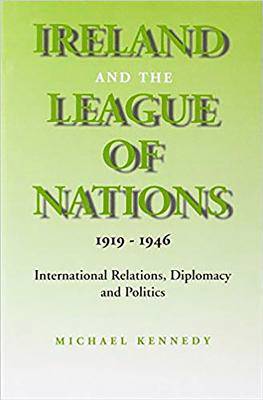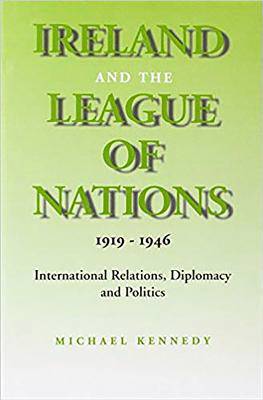
- Retrait gratuit dans votre magasin Club
- 7.000.000 titres dans notre catalogue
- Payer en toute sécurité
- Toujours un magasin près de chez vous
- Retrait gratuit dans votre magasin Club
- 7.000.0000 titres dans notre catalogue
- Payer en toute sécurité
- Toujours un magasin près de chez vous
Ireland and the League of Nations, 1919-1946
International Relations, Diplomacy and Politics
Michael Kennedy
68,45 €
+ 136 points
Description
From 1923 to 1946, Ireland was a committed, though critical, supporter of the League of Nations. Under Cumann Na Gaedheal and the foreign ministries of Fitzgerald and McGillgan, the state's policy was that of a radical. Ireland constantly sought to uphold the covenant and further the work of the League in the face of great power criticism. This was recognised with the Free State's Election to the League Council in 1930. Under Fianna Fail, de Valera built upon his predecessors' achievements and Ireland became a mature and influential League member. By the early mid-1930s, the Irish were involved in nearly all of the League's most important projects; and the great powers, such as Britain, recognised Ireland's role as one of the influential 'small states' in the League. The late 1930s saw the League decline after Italy's invasion of Abyssinia. Ireland still supported the League, but in a theoretical manner, as de Valera steered Ireland towards neutrality in the looming conflict. This book analyses Ireland's policy at the League in Geneva and the development of League policy in Dublin against the background of the turbulent inter-war years. It examines the personalities and issues behind policy and analyses their execution in Geneva. It draws on analysis of previously unseen material recently released from the Department of Foreign Affairs archives. This book is a fundamental reassessment of Irish foreign in the inter-war period.
Spécifications
Parties prenantes
- Auteur(s) :
- Editeur:
Contenu
- Nombre de pages :
- 285
- Langue:
- Anglais
- Collection :
Caractéristiques
- EAN:
- 9780716525493
- Date de parution :
- 30-01-96
- Format:
- Livre relié
- Format numérique:
- Genaaid
- Dimensions :
- 157 mm x 236 mm
- Poids :
- 566 g

Les avis
Nous publions uniquement les avis qui respectent les conditions requises. Consultez nos conditions pour les avis.






